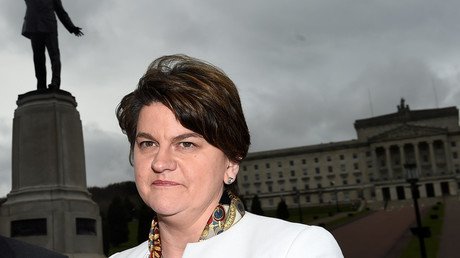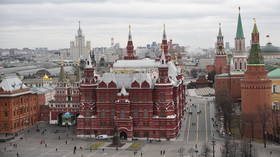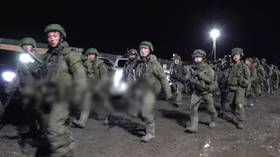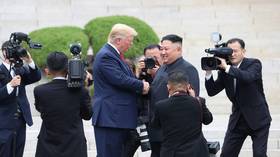Theresa May strikes deal with DUP to prop up minority government
Prime Minister Theresa May has finally reached an agreement with the Northern Irish Democratic Unionist Party (DUP) allowing her to officially form a minority government.
May was pictured with the DUP leader Arlene Foster, while their respective Westminster chief whips, Gavin Williamson for the Conservative Party and Jeffrey Donaldson for the DUP, signed the deal.
The DUP took a total of 10 seats at the general election on June 8.
The Conservatives reduced their share in the House of Commons to 317, falling short of the 326 needed for a majority.
The Tories now hope to be able to pass policy through the Commons with the tactical support of the DUP.
The PM said the DUP and her party “share many values” and the agreement was “a very good one.” Foster added she was “delighted” with the result of the two-party negotiations.
It is believed that a sum of £1 billion for confidence and supply was included in the deal.
If power-sharing is restored in Stormont, the Northern Irish devolved parliament, the DUP-Sinn Fein coalition would be responsible for the allocation of the extraordinary funds. The DUP said the cash would be spent on schools, hospitals and roads in Northern Ireland.
For the rest of the country, the deal meant that Tory plans to end the pensions triple lock and cut winter fuel payments have been scrapped.
“As we set out at the beginning of the talks, we share many values in terms of wanting to see prosperity across the UK, the value of the union, the important bond between the different parts of the United Kingdom,” May said from Downing Street on Monday.
“We very much want to see that protected and enhanced and we also share the desire to ensure a strong government, able to put through its programme and provide for issues like the Brexit negotiations, but also national security issues.”
In a statement outside Downing Street on Monday, Foster said full details of the deal would be shared with the public.
“We are agreed to meet the NATO commitment of spending two percent of GDP on armed forces, and we are further commitment to the armed forces covenant and to its implementation throughout the United Kingdom,” she said.
“Following our discussions the Conservative Party has recognized the case for higher funding in Northern Ireland given our unique history and circumstances over recent decades.
“Our aim throughout these negotiations has been to deliver for all people of Northern Ireland and the support measures which we are announcing will be to the benefit of all our people. They will boost the economy and invest in new infrastructure, as well as invest in the future of our health and education sectors, and a range of other measures.
“We welcome this financial support of £1 billion in the next two years, as well as providing new flexibilities on almost £500 million previously committed to Northern Ireland. As a consequence, spending of almost £1.5 billion will be available to address the unique circumstances of Northern Ireland and the effect these have had on the economy and its people.”
A coordination committee was also established by both parties for future work in Parliament. Both parties will meet at the end of each parliamentary session to review the deal.
The current parliamentary session is expected to last an unusual two years, in order to give the House time to deal with Brexit negotiations.














